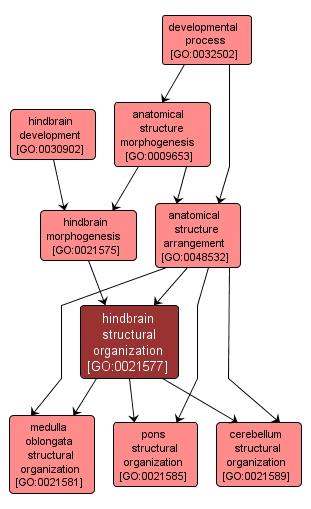| Desc: |
The process that contributes to the act of creating the structural organization of the hindbrain. This process pertains to the physical shaping of a rudimentary structure. The hindbrain is the region consisting of the medulla, pons and cerebellum. Areas of the hindbrain control motor and autonomic functions. |














